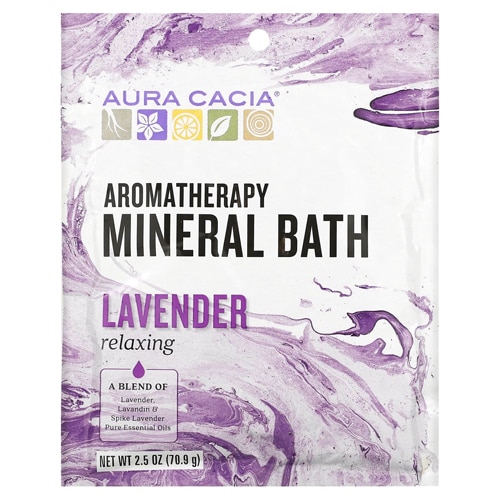[vc_row][vc_column][vc_column_text]Self-care is an important practice that is often pushed to the back burner in busy times. When days are overwhelming or fast-paced, it’s difficult to find time for self-care, yet these are the times it’s needed most. During times of stress, the body needs nutritious foods, movement and relaxation. These healthy practices ground a person amidst chaos.
Essential oils can be useful tools during stressful times; they encourage a slower pace, deeper breathing and are a helpful reminder that wellness is important, too. While there is no ‘magic pill’ for wellness and self-care, partnering
essential oils with certain healthy behaviors can help to manage stress and prioritize
self-care.
Read on to learn how you can incorporate essential oils into everyday routines for relaxation, motivation and skin care.

Essential Oils for Relaxation, Motivation & Skin Care
For relaxation
Carving out intentional time for relaxation in a society that prioritizes productivity can be a true challenge. It’s common to wrestle with guilt that you ‘should’ be doing something. Try reframing that message by viewing relaxing as productive. Relaxation can be as simple as taking three to five minutes out of your day for deep breathing or practicing a longer Yoga Nidra session to help connect with your body.
While basic hygiene like bathing shouldn’t be counted as self-care time, taking a longer bath or shower with aromatherapy, relaxing music and alone time can count towards stress-relieving, body-nourishing self-care. Prioritizing stress management through relaxation is like putting money into your body’s savings account. You feel better, often experience more joy and energy and can build resilience in the face of life’s challenges. Here are some easy ways to incorporate essential oils into your daily or weekly relaxation practices:
- Diffuse sandalwood or apply as a roll-on before deep-breathing exercises to help you feel centered and grounded. Taking just five deep, intentional breaths helps to relax the body. Try making the exhale slightly longer than the inhale for a more profound effect.
- Place several drops of lavender essential oil on your pillow before getting into bed to help facilitate deeper relaxation and recovery at night.
- Diffuse frankincense or apply as a roll on before doing yoga or taking a stretch break to help focus your mind on your practice and drown out extra noise.
- Use geranium, chamomile or lavender bath salts or even place several drops in the shower (not in the bath unless diluted in a carrier oil!) to maximize the relaxing effects of water therapy.
For motivation
Aromatherapy is a wonderful way to build/reinforce motivation for self-care practices like movement. Diffusing or spraying certain essential oils prior to a workout, a walk or even just getting up from your desk to stretch can help brighten your mood, feel uplifted and ready to move. Citrus oils in particular are known for their uplifting, energizing effects.
Try inhaling
sweet orange essential oil if you’re feeling down or lemon if you’re feeling sluggish/tired. Mint family members, including
peppermint and
rosemary, are also wonderful for encouraging energy and motivation. Combine peppermint and sweet orange for pre-workout boost, or rosemary and bergamot if you’re feeling afternoon brain fog and can’t fathom finding the resiliency to move. Here are a few more tips for using essential oils to reinforce the motivation aspect of self-care:
- Make a ‘motivation mist’ by combining 12 drops of peppermint and 12 drops of sweet orange in 2 oz. of distilled water. Add 1 tsp. vegetable glycerin if you want to use it as a body mist.
- Diffuse tangerine and spearmint in the morning to help you get ready for your day.
- Diffuse or inhale lemon essential oil from the bottle to help you feel more energized and alert before a workout
- Diffuse or spray a blend of rosemary and bergamot to help wake up your mind or get rid of the “I don’t wanna’s.”
For skin care
Just like taking the time to prepare nourishing food is a form of self-care, taking the time to nourish your skin can help you feel tended to and cared for. Skincare oils like
jojoba,
argan and
rosehip are rich in essential fatty acids that support skin health, and when mixed with essential oils, the benefits are multiplied. Essential oils can add toning, soothing and aromatherapeutic benefits.
Even when you feel tired, overwhelmed or just generally run-down, applying a bit of
facial serum or body oil can help you feel like you’ve done something to prioritize yourself. Try a few of these tips to keep your skin feeling healthy and looking fresh even when life is a bit much:
Regardless of which practice you choose, try to do one small thing every day to care for yourself and prioritize your mental, physical and emotional health. Investing in your wellbeing through small acts of self-care will add up and help you on your journey to learning just how good you’re capable of feeling.[/vc_column_text][/vc_column][/vc_row][vc_row][vc_column][vc_text_separator title="Featured Products" border_width="2"][vc_row_inner equal_height="yes" content_placement="middle" gap="35"][vc_column_inner width="1/3"][vc_single_image image="173624" img_size="full" alignment="center" onclick="custom_link" img_link_target="_blank" css=".vc_custom_1710520697245{padding-right: 7% !important;padding-left: 7% !important;}" link="https://www.vitacost.com/aura-cacia-natural-skin-care-oil-sweet-almond"][/vc_column_inner][vc_column_inner width="1/3"][vc_single_image image="173623" img_size="full" alignment="center" onclick="custom_link" img_link_target="_blank" css=".vc_custom_1710521092216{padding-right: 7% !important;padding-left: 7% !important;}" link="https://www.vitacost.com/aura-cacia-aromatherapy-bubble-bath-tranquil-chamomile-13-fl-oz"][/vc_column_inner][vc_column_inner width="1/3"][vc_single_image image="173622" img_size="full" alignment="center" onclick="custom_link" img_link_target="_blank" css=".vc_custom_1710521110138{padding-right: 7% !important;padding-left: 7% !important;}" link="https://www.vitacost.com/aura-cacia-100-pure-essential-oil-rosemary"][/vc_column_inner][/vc_row_inner][/vc_column][/vc_row]





